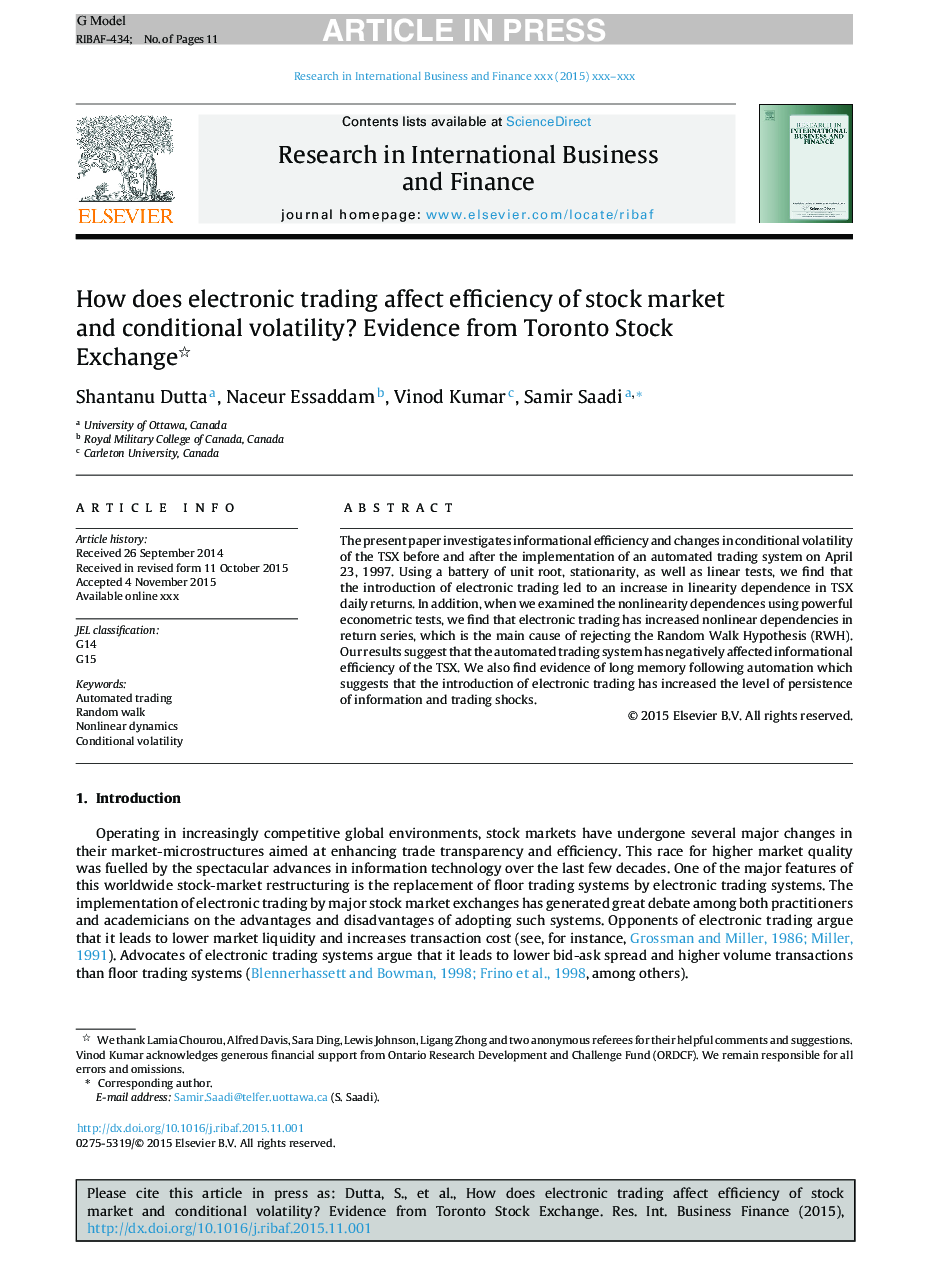| Article ID | Journal | Published Year | Pages | File Type |
|---|---|---|---|---|
| 5107438 | Research in International Business and Finance | 2017 | 11 Pages |
Abstract
The present paper investigates informational efficiency and changes in conditional volatility of the TSX before and after the implementation of an automated trading system on April 23, 1997. Using a battery of unit root, stationarity, as well as linear tests, we find that the introduction of electronic trading led to an increase in linearity dependence in TSX daily returns. In addition, when we examined the nonlinearity dependences using powerful econometric tests, we find that electronic trading has increased nonlinear dependencies in return series, which is the main cause of rejecting the Random Walk Hypothesis (RWH). Our results suggest that the automated trading system has negatively affected informational efficiency of the TSX. We also find evidence of long memory following automation which suggests that the introduction of electronic trading has increased the level of persistence of information and trading shocks.
Related Topics
Social Sciences and Humanities
Business, Management and Accounting
Business and International Management
Authors
Shantanu Dutta, Naceur Essaddam, Vinod Kumar, Samir Saadi,
